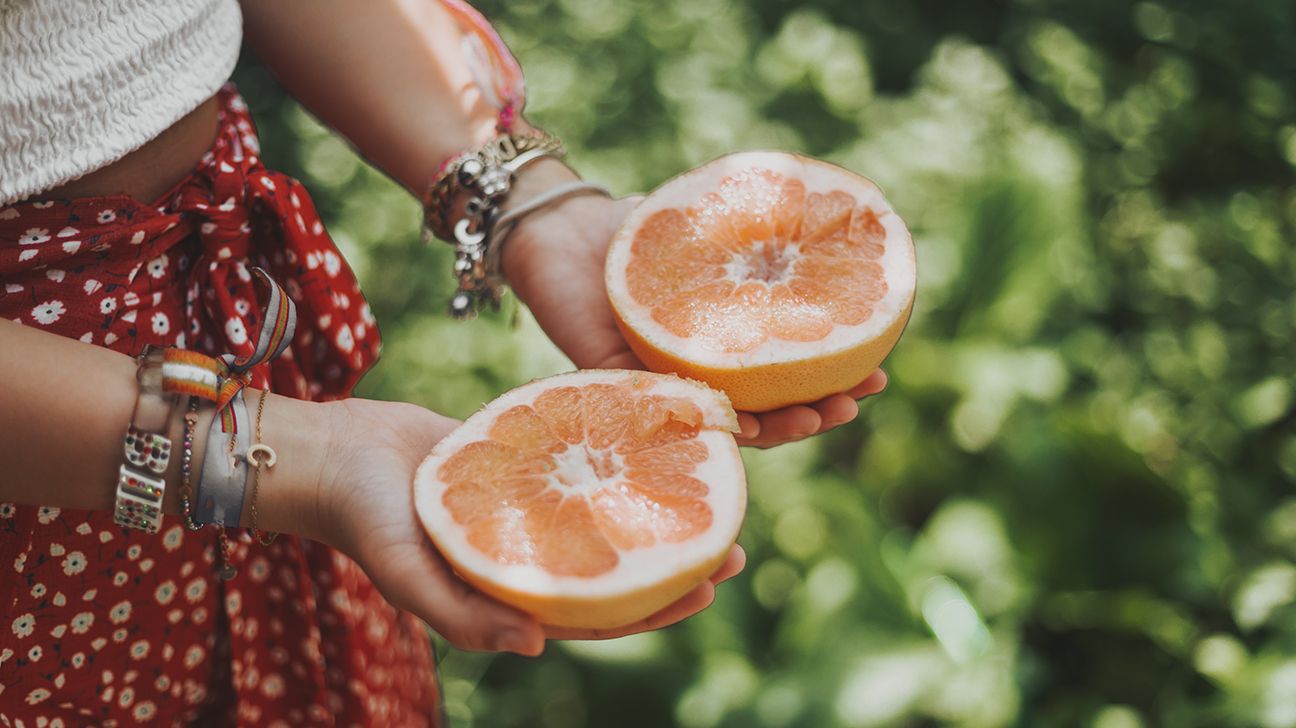Foods such as sugar, saturated fats, and alcohol may promote the spread of HER2-positive breast cancer and should be avoided if you have this cancer. Some other foods may slow the cancer’s progress.

Your daily diet can affect your overall health. About
Some foods may slow the growth of HER2-positive breast cancer by reducing the amount of HER2 protein the cancer cells make. Other foods may block cancer cells from getting nutrition or make them more sensitive to drug treatment.
Conversely, some foods may worsen breast cancer and other kinds of cancer by making it easier for the cancer cells to grow and spread.
Sugary foods
A
Sugary foods may increase the chances of getting breast cancer and cause cancer cells to grow more quickly. This may be because sugar causes inflammation in the body.
Sugary foods include refined or simple carbohydrates or starches. The
Avoid added sugars in foods and drinks. You can look for the following terms on ingredient labels:
- sucrose
- fructose
- glucose
- dextrose
- maltose
- levulose
You should also avoid simple or starchy carbohydrates, including:
- corn syrup or high fructose corn syrup
- soda
- fruit juices
- energy drinks
- white bread and pasta
- white rice
- baked goods that contain white flour
Alcohol
According to a
A
Saturated and trans fats
According to a 2021 review, diets high in saturated fats may make it easier for breast cancer cells to grow by increasing your low-density lipoprotein (LDL) cholesterol levels.
Researchers believe this might happen because LDL helps the cancer cells make the proteins that they need to grow. Keeping your LDL cholesterol level low can help reduce your risk of developing breast cancer and promote overall health.
Avoid foods with saturated and trans fats that can elevate your LDL, including:
- partially hydrogenated vegetable oils
- margarine
- shortening
- nondairy creamers
- deep-fried foods
- packaged cookies and crackers
- cake mixes
- cake frosting
- pies and pastries
- processed snacks, such as chips
- frozen dinners
Meats
Diets high in processed meat and red meat have been linked to an increased risk of breast cancer. Processed meat and red meat are high in saturated fat as well.
Meat is also low in melatonin. According to a 2023 review, melatonin has an antitumor effect on breast cancer, which means it stops the cells from growing and causes them to die.
Citrus fruits
Citrus fruits contain antioxidants called flavonoids, may help slow the growth of breast cancer cells, according to a
Consider eating the following citrus fruits:
- oranges
- grapefruits
- lemons
- limes
The authors of another 2023 review suggest that two specific flavonoids in citrus fruits, naringenin and hesperetin, may help stop HER2-positive cancer cells from growing. However, more research is needed.
Black pepper
Black pepper contains an active compound called piperine.
The results of a 2021 review suggest that piperine has an antiproliferation effect on HER2-positive breast cancer cells, which means it may stop them from growing.
Vegetables with phytoestrogens
Consider eating more vegetables and herbs, such as:
- Chinese cabbage
- celery
- parsley
- bell peppers
- rutabagas
- lettuce
All these vegetables contain plant-based compounds called phytoestrogens, or flavones.
A 2022 review suggests that a phytoestrogen called pterostilbene may help prevent the growth of HER2-postive breast cancer cells.
Omega-3 fatty acids
Foods that are high in healthy unsaturated fats called omega-3 fatty acids are good for your overall health, and some research from 2022 suggests that they can improve the effectiveness of treatment for HER2-positive breast cancer.
Foods high in omega-3 fatty acids include:
- olive oil
- flaxseed
- chia seeds
- pumpkin seeds
- pine nuts
- walnuts
- navy beans
- avocados
- algae
- salmon
- sardines
- mackerel
- trout
- tuna
The authors of a 2022 review suggest that extra-virgin olive oil has an antitumor effect on HER2-positive breast cancer cells.
A 2020 study also found that flaxseed oil could help stop breast cancer cells from growing in mice. However, more research in humans is necessary to learn more about this potential effect.
Melatonin foods
A 2023 review suggests that melatonin has an antitumor effect and may prevent cancer from spreading to other parts of your body.
Your body makes melatonin in small amounts. You can also get a healthy dose of melatonin from the following foods:
- eggs
- fish
- nuts
- mushrooms
- sprouted legumes
- sprouted seeds
Soy foods
Soy contains several types of flavones, plant-based compounds that may help slow or stop the growth of breast cancer cells.
Eating more soy protein rather than animal protein may also help lower your cholesterol levels, which can help your body fight breast cancer.
Consider adding any of the following soy foods to your diet:
Grapes
A
Red and purple grapes are also rich in an antioxidant called resveratrol, which may improve the results of breast cancer treatments, including radiation therapy and chemotherapy. This is thought to occur because resveratrol can balance natural estrogen hormones in your body.
Your diet may be a factor in helping to reduce the risk of a variety of health conditions or even in treating them. But more research is needed to explore the effects of specific foods on HER2-positive breast cancer.
Research on the effects of specific food components on breast cancer cells is usually performed in a lab setting. Many studies are performed on cancer cells only or on cancer cells in mice and other animals. Results may differ when investigating dietary intake in humans who are at risk for breast cancer.
Diet alone can’t prevent or treat any type of cancer. You can talk with your doctor or a dietitian about the best diet and exercise program for you.





